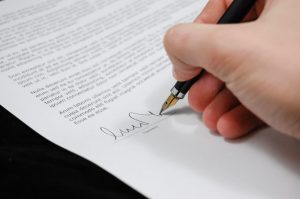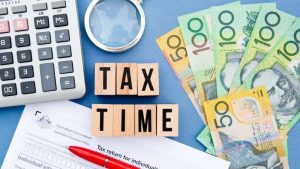Gambling license USA
We summarize the most important online gambling laws pertaining to gambling operators and users of gaming services. Specifically within the countries where online gambling is legal to some degree or other.
If after reading this document you are still unsure of what to do, we assist you with a USA legal opinion for your casino, game or sportsbook.
The real way to license in America
Having worked with a number of companies looking to license in the United States I thought I would add a paragraph to outline how it really works as apposed to what legislation would otherwise have you believe.
If you are a company looking to operate legally in the US then brace yourself, its expensive. If you were going to go the traditional route of applying with each state, expect to spend at least $750K in filing fees and anything north of $100K on legal fees.
And this does not guarantee you will get your license.
The above is to be expected of a nation finding its feet in terms of how to manage its gaming activities and in time sanity will prevail.
So how are companies going about getting their gambling licensing in America? Well, what they are doing is partnering with existing land based casinos in order to piggy back off their license. This comes with a fee (anything from $1 – 5M +) and a revenue share deal (8 – 15%) which is eye watering when compared to how the rest of the world works. The advantage though is that you will get a deal and will be able to operate.
At the moment we are working on a number of solutions to assist companies with US related licensing – get in touch if you need some help.
Gambling license USA
The USA is a very lucrative market for online gambling companies. Although, there are many legal risks involved. Since 24% of all online gamblers in the world reside in North America, and the majority of gambling companies doing their hosting in Curacao (where we have our operations – to find out more Click here), we go into detail about the legal situation in this country.
The individual States in the USA have the power to make laws pertaining to their state only. But on the other hand, there are Federal Laws that are applicable to the whole country, while protecting State rights. This makes the online gambling legal situation in the country very complex.
We start by giving an overview of the main Federal laws that address the legality of online betting, wagering and gambling in the USA. We will then have a look at the situation in the individual States.
USA Federal gambling laws:
1. The Interstate Wire Act of 1961 (commonly referred to as the Federal Wire Act).
This law addresses only the issue of online sports betting and wagering. It does not address the legality of online gambling as such.
Here is paragraph (a) from that law:
“Whoever being engaged in the business of betting or wagering knowingly uses a wire communication facility for the transmission in interstate or foreign commerce of bets or wagers or information assisting in the placing of bets or wagers on any sporting event or contest, or for the transmission of a wire communication which entitles the recipient to receive money or credit as a result of bets or wagers, or for information assisting in the placing of bets or wagers, shall be fined under this title or imprisoned not more than two years, or both.”
Source: http://www.law.cornell.edu/uscode/text/18/1084
2. Illegal Gambling Business Act of 1970
The Illegal Gambling Business Act was enacted as part of the Organized Crime Control Act of 1970. This Act was designed to be a companion to other laws, such as the Federal Wire Act, in targeting a source of income for organized crime. Unlike the Federal Wire Act, the Illegal Gambling Business Act is designed to assist states in enforcing their laws with regard to interstate gambling activities and is dependent on a predicate state offense.
Here are some extracts from that law:
18 U.S.C. 1955 the Statute
Prohibition of illegal gambling businesses
(a) Whoever conducts, finances, manages, supervises, directs, or owns all or part of an illegal gambling business shall be fined under this title or imprisoned not more than five years, or both.
(b) As used in this section-
(1) “illegal gambling business” means a gambling business which-
(i) is a violation of the law of a State or political subdivision in which it is conducted;
(ii) involves five or more persons who conduct, finance, manage, supervise, direct, or own all or part of such business; and
(iii) has been or remains in substantially continuous operation for a period in excess of thirty days or has a gross revenue of $2,000 in any single day.
And:
(e) This section shall not apply to any bingo game, lottery, or similar game of chance conducted by an organization exempt from tax under paragraph (3) of subsection (c) of section 501 of the Internal Revenue Code of 1986, as amended, any private shareholder, member, or employee of such organization except as compensation for actual expenses incurred by him in the conduct of such activity.
3. Interstate Wagering Amendment of 1994
This Act relates mostly to lotteries:
“Whoever brings into the United States for the purpose of disposing of the same, or knowingly deposits with any express company or other common carrier for carriage, or carries in interstate or foreign commerce any paper, certificate, or instrument purporting to be or to represent a ticket, chance, share, or interest in or dependent upon the event of a lottery, gift enterprise, or similar scheme, offering prizes dependent in whole or in part upon lot or chance, or any advertisement of, or list of prizes drawn or awarded by means of, any such lottery, gift enterprise, or similar scheme; or, being engaged in the business of procuring for a person in 1 State such a ticket, chance, share, or interest in a lottery, gift, enterprise or similar scheme conducted by another State (unless that business is permitted under an agreement between the States in question or appropriate authorities of those States), knowingly transmits in interstate or foreign commerce information to be used for the purpose of procuring such a ticket, chance, share, or interest; or knowingly takes or receives any such paper, certificate, instrument, advertisement, or list so brought, deposited, or transported, shall be fined under this title or imprisoned not more than two years, or both.”
4. Unlawful Internet Gambling and Enforcement Act of 2006 (UIGEA)
Any online gambling operator will have to take this law into consideration. It targets large online gambling operations, and does not criminalize the consumers who participate in online gambling.
The Act prohibits gambling businesses from knowingly accepting payments in connection with the participation of another person in a bet or wager that involves the use of the Internet and that is unlawful under any federal or state law (termed “restricted transactions” in the Act). The Act also requires Treasury and the Federal Reserve Board (in consultation with the U.S. Attorney General) to promulgate regulations requiring certain participants in payment systems that could be used for unlawful Internet gambling to have policies and procedures reasonably designed to identify and block or otherwise prevent or prohibit the processing of restricted transactions.
The Treasury and the Federal Reserve Board have issued a joint rule that designates five payment systems which are covered by the Act. These systems are:
(i) automated clearing house (ACH) systems,
(ii) card systems,
(iii) check collection systems,
(iv) money transmitting businesses, and
(v) wire transfer systems.
The Act starts with the following paragraphs:
“(a) Findings.- Congress finds the following:
(1) Internet gambling is primarily funded through personal use of payment system instruments, credit cards, and wire transfers.
(2) The National Gambling Impact Study Commission in 1999 recommended the passage of legislation to prohibit wire transfers to Internet gambling sites or the banks which represent such sites.
(3) Internet gambling is a growing cause of debt collection problems for insured depository institutions and the consumer credit industry.
(4) New mechanisms for enforcing gambling laws on the Internet are necessary because traditional law enforcement mechanisms are often inadequate for enforcing gambling prohibitions or regulations on the Internet, especially where such gambling crosses State or national borders.”
Notwithstanding section 5362 (2), a financial transaction provider, or any interactive computer service or telecommunications service, may be liable under this subchapter if such person has actual knowledge and control of bets and wagers, and-
(1) operates, manages, supervises, or directs an Internet website at which unlawful bets or wagers may be placed, received, or otherwise made, or at which unlawful bets or wagers are offered to be placed, received, or otherwise made; or
(2) owns or controls, or is owned or controlled by, any person who operates, manages, supervises, or directs an Internet website at which unlawful bets or wagers may be placed, received, or otherwise made, or at which unlawful bets or wagers are offered to be placed, received, or otherwise made.”
More information can be found at: https://en.wikipedia.org/wiki/Unlawful_Internet_Gambling_Enforcement_Act_of_2006
Because of these Federal gambling laws, online gambling companies are hosting their operations in off-shore countries that supply legal gambling licenses and also using off-shore money transfer services. But even doing so has its risks as can be seen from the recent arrests of the founders of companies like PokerStars, Full Tilt Poker, and Absolute Poker.
The United States judiciary system seems to target only the largest online gambling operators (many of them quoted on the Stock Exchanges), which leaves the market open for the smaller companies. Indeed, we see a spike in these smaller companies’ business turnover as gambling enthusiasts moved over to them after their main resources were cut off.
According to Department of Justice the companies allegedly tried to circumvent UIGEA rules with the help of others who acted as “payment processors” by helping to disguise gambling revenue as payments for non-existent goods such as jewelry or golf balls. A bank in Utah was charged as an accomplice.
State Laws:
The legality of online gambling varies across among each individual state. As of late, many states have taken significant strides in the online gambling industry. New Jersey has been at the forefront of legalizing online gambling. In fact online gambling has been legal for quite some time there. In total, the online casinos have generated a staggering 1.4 billion dollars in revenue. And since legalization, annual growth has skyrocketed.
In order to obtain an online gambling license within New Jersey, one will have to partner with a local land-based casino. If the commercial agreement is successful, financial disclosures as well as game testing will follow. As of mid 2020, Pennsylvania and West Virginia have both adopted the same process.
States Where Sports Betting is Legal:
States such as Illinois have renewed their Gambling Acts to allow for online sports betting. However, like many other states with similar laws, the new Illinois Gambling Act does not permit any other form of online casinos. Many states that have opted for legalizing online sports betting but have yet to even review the ban on online casino gambling. These are the following states that have legalized some form of sports betting:
Washington
Oregon
Montanan
Colorado
New Mexico
Arkansas
Mississippi
Tennessee
North Carolina
Delaware
Mariland
Virginia
States Where No Specific Legislation Exists:
The question of the legality of online gambling is a complex one. As it stands many States do not have explicit laws on this question. Even so, the following States have instituted specific laws that prohibit internet gambling. That which would make it illegal for their citizens to take part in online gambling activities:
Louisiana
Montana
Minnesota
South Dakota
North Dakota
Wisconsin
That does not mean that States not on the list allow online gambling – there may just not be a specific current law dealing with that issue.
We are indebted to http://www.gambling-law-us.com for the following information on the different gambling laws of the individual States:
(Follow the links attached to each State to get the details of the specific legal situation)
For more information:
As gambling is regulated by state and territory, you can review the links under the “Gambling and Licencing” heading.
Get in touch:

FURTHER INFORMATION ON CURACAO GAMBLING LICENSES
We wrote an article on Curacao Gambling License which may be of interest to you should you be looking for alternative casino licensing information.






















